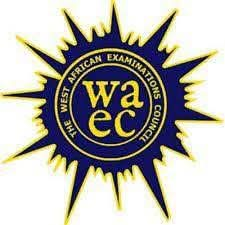
By Ibrahim Kegbegbe
Lagos, Nigeria – October 8, 2025
When the Federal Government approved the proposal by the West African Examinations Council (WAEC) to conduct the 2025/2026 Senior Secondary School Examinations through computer-based testing (CBT), it sounded like a visionary leap toward modernizing Nigeria’s education system. But as promising as the idea appears, the reality in most public secondary schools tells a different story — one of unpreparedness, inequality, and policy disconnected from the classroom experience.
A recent Merit Newspaper investigation revealed that only about 60 percent of private secondary schools in Nigeria have functional computer laboratories, while less than 10 percent of government-owned schools can boast of such facilities. Even among those few, most are elite federal colleges like King’s College and Queen’s College in Lagos, and a handful of model boarding schools. The majority of day schools under state control operate without computer laboratories or stable electricity.
If this data is anything to go by, examination failure looms on the horizon. The plan to have students across Nigeria sit for WAEC on computer systems by 2026, while still learning in environments without digital tools, risks deepening educational inequality rather than bridging it.
The Government’s Vision — and the Reality Gap
According to the Minister of Education, Dr. Tunji Alausa, the Federal Government has directed that objective papers for WAEC and NECO move to CBT by November 2025, and that by May/June 2026, both objective and essay components will be fully digital. The government says the move is part of its agenda to align Nigeria’s education system with global standards and to combat examination malpractice.
“This is about integrity,” Dr. Alausa said earlier this year. “We have to use technology to fight fraud and ensure fairness. The worst part of cheating is that it disincentivises the hard-working ones.”
While that statement sounds noble, experts and parents argue that the policy overlooks ground realities. Data from the National Bureau of Statistics (NBS) show that only 28.7 percent of senior secondary students possess basic computer proficiency nationwide. In some northern states, the rate falls below 10 percent. The Universal Basic Education Commission (UBEC) also reports that only 12 percent of rural public schools teach computer studies, compared to near-total inclusion in urban private schools.
These numbers expose a troubling truth — that the infrastructure and human capital necessary for a successful digital transition are barely in place.
Experts Sound the Alarm
Education stakeholders have voiced their reservations about the government’s timeline.
Haruna Danjuma, President of the Parents-Teachers Association of Nigeria (NAPTAN), described the 2026 target as “unrealistic and impractical.”
“Over 70 percent of students in public schools, especially in rural communities, are not computer literate,” he said. “You cannot ask a child who has never operated a computer to take a national examination on one. It’s like asking a fisherman to fly a plane.”
Similarly, Pastor Ayodele Adelusi, an education consultant, faulted WAEC’s technical requirement that schools must have at least 250 functional computers to host CBT exams. “That’s not only burdensome; it’s exclusionary. Many small schools can’t even power 50 computers, let alone 250,” he noted.
WAEC’s Head of National Office, Dr. Amos Dangut, however, insists that the council is prepared for a gradual rollout. He explained that mock sessions and online practice platforms are being developed to help students familiarize themselves with the CBT format before the full implementation. “No candidate will be left behind,” Dr. Dangut assured, adding that WAEC is working with state governments to bridge digital gaps.
READ ALSO:Tinubu Accepts Nnaji’s Resignation Amid Scandal Allegations
But even that reassurance does little to calm the anxiety of teachers who see the daily struggles firsthand. A teacher at a government day school in Lagos, who asked not to be named, lamented: “We barely have electricity to power fans, not to talk of running computers for over a hundred students. The policy looks good on paper, but the reality in our classrooms is frightening.”
Lessons from JAMB’s Experience
Nigeria has been down this road before. When the Joint Admissions and Matriculation Board (JAMB) introduced CBT for university entrance exams in 2015, the early years were marred by technical failures, low computer literacy, and widespread complaints from candidates. It took years of investment, training, and partnership with private CBT centres before the process stabilized.
WAEC’s model, however, affects a much larger and younger group of students — many of whom are still in environments without consistent access to digital tools. Without significant investment, this rollout risks replicating the same early pitfalls JAMB experienced, but on an even larger scale.
Bridging the Digital Divide Before 2026
To ensure that this bold vision does not become an academic tragedy, several urgent steps are necessary:
1. Phased Implementation: Begin with objective papers in schools already equipped for CBT. Rural and underfunded schools should have extended timelines and government support before full transition.
2. Infrastructure Investment: Federal and state governments must prioritize establishing functional computer labs, reliable electricity, and internet connectivity in all public schools.
3. Capacity Building: Training teachers and students in digital literacy should precede the examination rollout. Every student should have hands-on experience with computers long before exam day.
4. Shared CBT Centres: For schools lacking facilities, designated CBT centres should be provided — funded by the government, not students.
5. Monitoring and Evaluation: Continuous assessment of readiness across states should guide policy adjustments, not political timelines.
Vision Without Preparation Is Chaos
There is no doubt that digitalizing national examinations is a necessary step in Nigeria’s educational evolution. It promises efficiency, transparency, and modernization. However, as with every reform, success depends on groundwork.
If WAEC and the Federal Government fail to match ambition with infrastructure, Nigeria may find itself producing a new generation of students who fail — not because they lack knowledge, but because they were never equipped to use the tools required to demonstrate it.
As Haruna Danjuma of NAPTAN rightly warned, “Policies should not punish the poor for being poor. Digital transformation should start in the classroom — not in the examination hall.”
READ ALSO:Alao Daniel Emerges as Eti-Osa PDP LGA Chairman
Nigeria must act fast — not by enforcing deadlines, but by building readiness. Because in education, as in life, speed without preparation leads to failure.
















